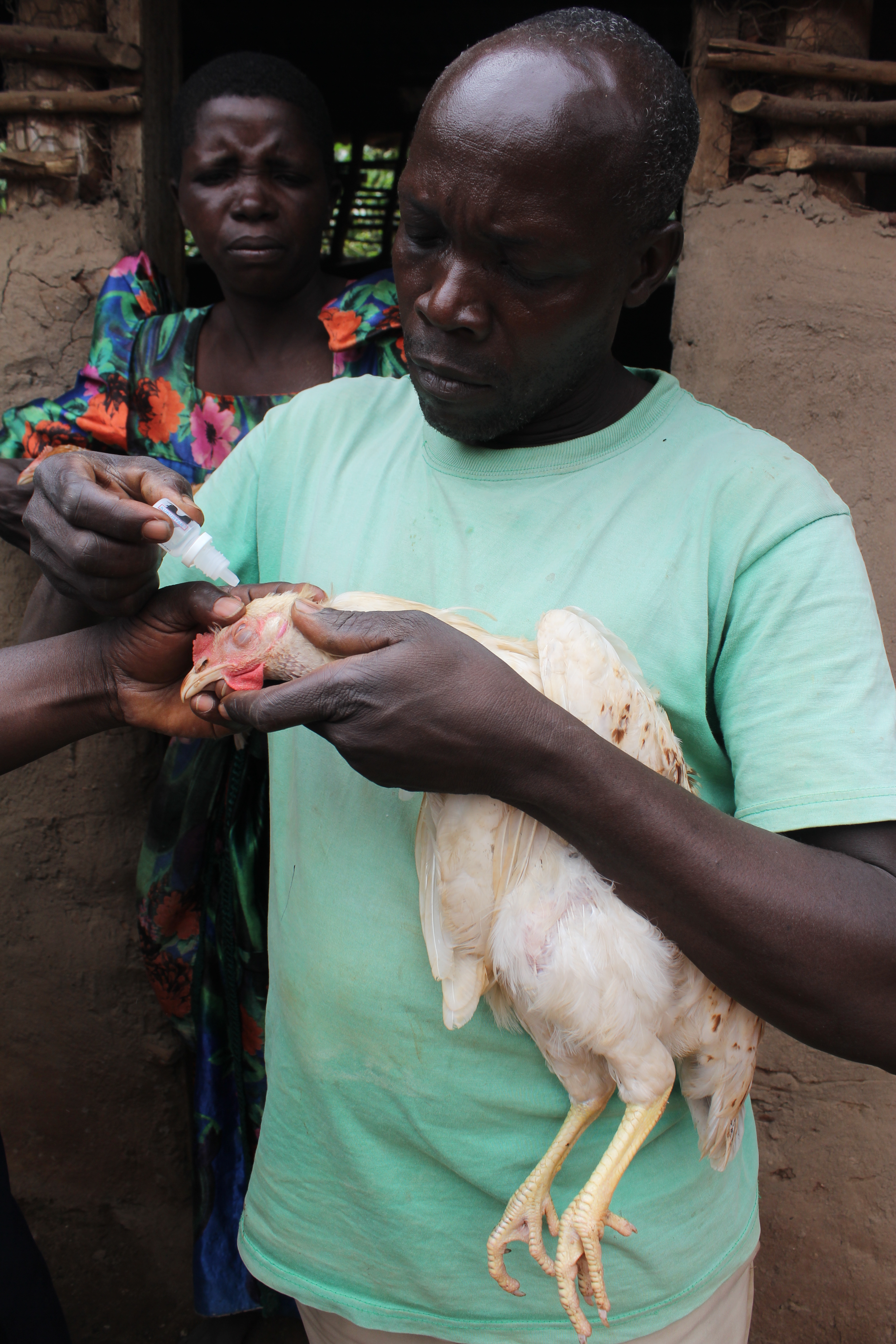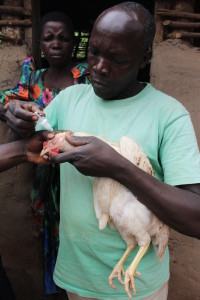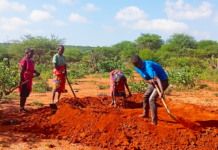By Jessica Summers
Chickens are an important source of income and food for rural families across Africa. Newcastle disease, a highly infectious viral disease that affects poultry, can be fatal and wipe out entire flocks. Whilst there is no cure for Newcastle Disease, vaccination is enough to control the disease and protect valuable chickens and other poultry. A new I-2 vaccine, which can last longer than a conventional vaccine, is making a huge difference to Ugandan poultry keepers’ livelihoods, especially in rural areas.
Removing barriers
One of the biggest obstacles currently faced by small-scale farmers and poultry keepers is that vaccines quickly lose effectiveness if not kept refrigerated, usually within 2 hours. The benefit of the newly registered I-2 vaccine is that it is thermotolerant, which means it can be stored for longer without refrigeration in temperatures up to 37◦C without any temperature variations. This makes the vaccine much more user-friendly: even in remote rural areas, poultry keepers can administer the liquid vaccine themselves directly into birds’ eyes or nostrils.
To help bring this vaccine to where it is needed most, the Global Alliance for Livestock Veterinary Medicines (GALVmed) has partnered with private vaccine manufacturer, Brentec, based in Kampala, Uganda. GALVmed is a non-profit organization working towards available and accessible livestock vaccines for smallholder farmers, and this partnership is enabling Brentec to produce the I-2 vaccine (Brentec’s branded vaccine is called Kukustar) and distribute it to rural areas
Sarah Nanzala, a farmer who has been rearing chicken for more than five years has noticed a huge difference since using the vaccine: “I used to rear 50 chickens and around 20 would die as a result of Newcastle Disease. But since I started using Kukustar none of my chickens have died. I have been able to pay my children’s school fees. I urge all farmers to use Kukustar vaccine and ask that manufacturers like Brentec keep bringing it to us.” Muchiri Stephen is another farmer who has realised the importance of vaccinating chickens using Kukustar: “We are lucky that whenever we need to, we can vaccinate our birds. The fact that we can reduce the mortality rate of the birds is making farmers love keeping the birds.”
Private sector for public good
Together, Brentec and GALVmed are using a private sector model to effectively distribute the vaccine to farmers through agrovets. Under this model, farmers pay a small fee to purchase the vaccine from agrovet businesses that, in turn, order the vaccine in bulk from Brentec. By paying a small fee, farmers appreciate the economic value of the vaccine in comparison to free-distribution models, which often only last as long as a project or campaign is funded.
As Brian Bigirwa, Quality Assurance Manager at Brentec in Kampala explains: “Most initiatives fail because people give out the vaccine for free. So farmers do not understand the value of the vaccine. But if a farmer spends as little as 100 shillings on the vaccine and they manage to sell the healthy chicken for 12,000 shillings, they can see the value. I encourage organisations trying to [combat livestock diseases] to make vaccines affordable but never free. Farmers need to understand the value for a sustainable market.”
The private sector model works well, according to poultry keepers, farmers, agrovets, and extension workers because, “We get these vaccines when we need them, in the quantity we need, and well before the expiry date,” says vaccinator, Ikona Stephen. Another positive is that farmers are able to contribute what they can towards the vaccine quantity required for their flocks: as little as 100 Ugandan shillings ($0.03) for a small vial. Using formal distribution channels such as an agrovet business helps reduce animosity caused by access difficulties and uneven distribution efforts. For example, farmer Anyoti Godfrey now also helps to vaccinate his neighbours’ birds: “It makes sense and it helps to carry out the [vaccination] programme without any loopholes because the neighbours can afford the same as you in this system.”
Paying attention to poultry
Creating a long-term, viable vaccination market for poultry makes sense for all those involved. “Kukustar is very good compared to other products which come around and stay for a few years and then disappear off the market,” explains vet and Kukustar distributer, Dr Nahamya Florence. “Now that the vaccine is available, people are increasing their numbers of poultry and also their stocks of Kukustar. Of course, this means I also have a job and food on the table. But, at the same time, I feel happy that my customers’ welfare is improved. So I believe the vaccine is doing a very good job in Uganda’s economy, 80% of which relies on agriculture,” Dr Florence explains.
Extension worker for Buyengo sub-county in Jinja district, Uganda, Samson Ojakol, thinks the public-private partnership between GALVmed and Brentec is a wonderful approach, “the poultry industry in Uganda was neglected before,” he says. “Now we’re saving the life of birds and improving the lives of people.”















